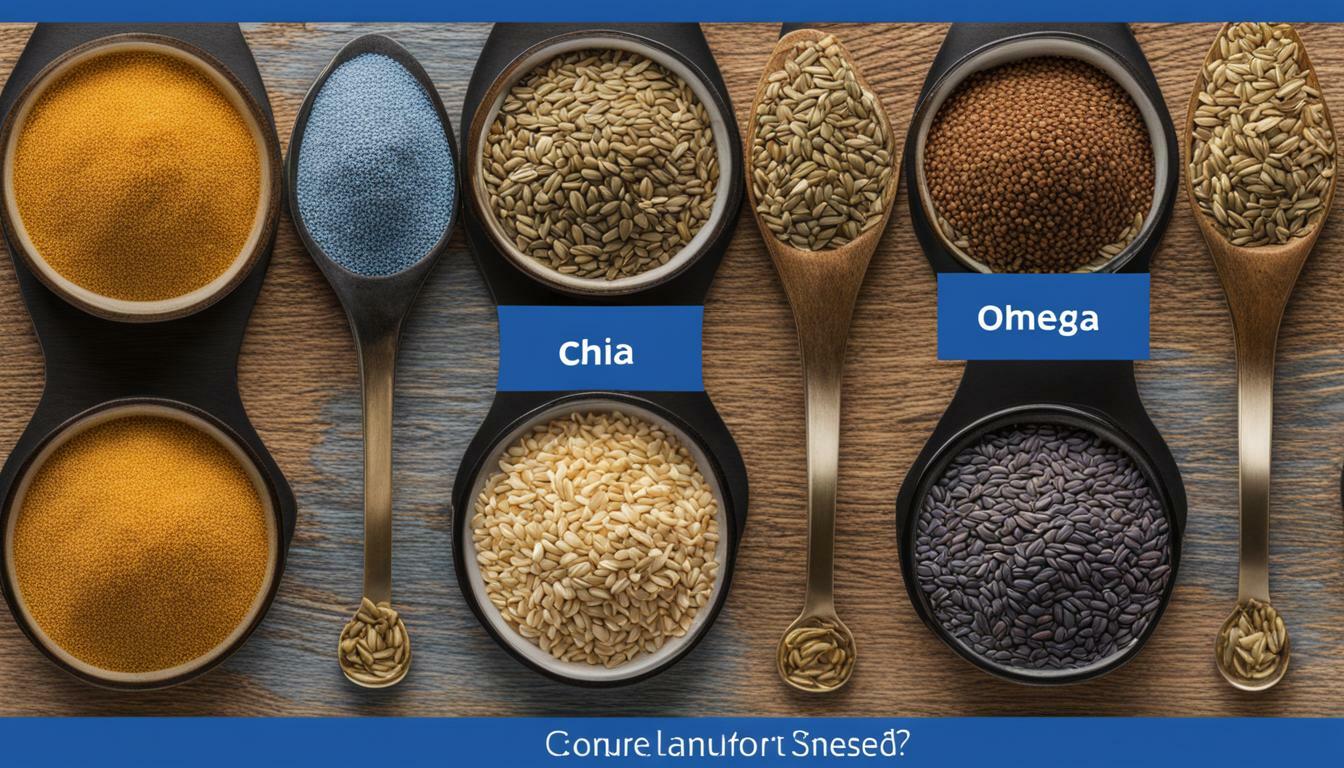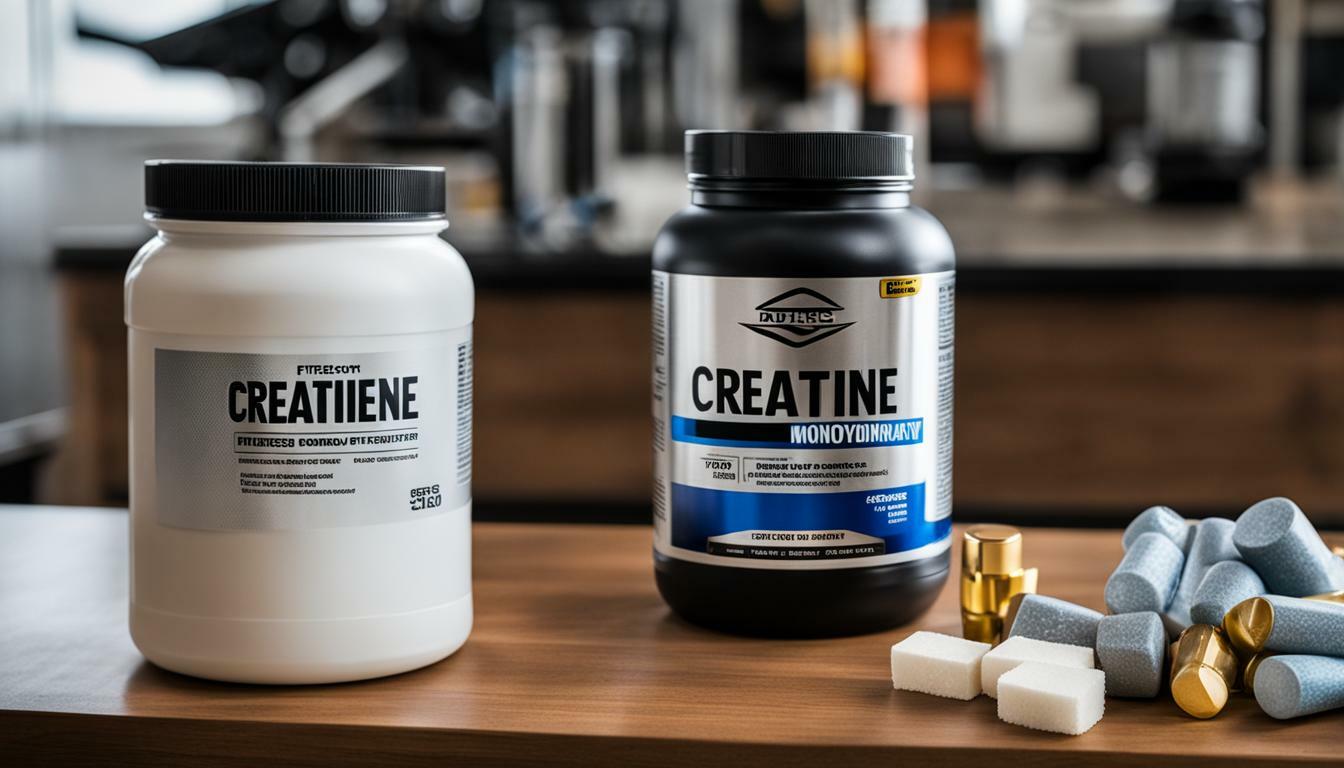When it comes to protein supplements, understanding the difference between isolate and concentrate protein is essential for achieving your fitness goals. Whey protein comes in different forms, including whey isolate and whey concentrate. Whey isolate undergoes more processing than whey concentrate, resulting in higher protein content and lower fat, carb, and lactose content. Whey isolate is typically more expensive than whey concentrate. Both whey isolate and concentrate have similar benefits for muscle building and recovery. It is important to consider personal dietary needs and preferences when choosing between the two forms.
Key Takeaways:
- Whey isolate and concentrate are two different forms of whey protein.
- Whey isolate has a higher protein content and lower fat, carb, and lactose content compared to whey concentrate.
- Whey isolate is generally more expensive than whey concentrate.
- Both whey isolate and concentrate have benefits for muscle building and recovery.
- Personal dietary needs and preferences should be considered when deciding between whey isolate and concentrate.
Protein Isolate vs. Protein Concentrate: What Sets Them Apart?
Protein isolate and protein concentrate are two popular forms of whey protein, but they differ in terms of how they are processed and the resulting nutrient profiles. Whey isolate undergoes more processing, which helps to remove more impurities and lactose, resulting in a purer form of protein. This extra processing also leads to a higher protein content, making whey isolate an excellent choice for those looking to maximize their protein intake.
On the other hand, whey concentrate undergoes less processing, allowing it to retain more of its natural components, including beneficial fats, carbohydrates, and other nutrients. While the protein content of whey concentrate is slightly lower compared to isolate, it still provides a significant amount of high-quality protein that is easily absorbed by the body. Whey concentrate is a versatile option that offers a balanced combination of protein and nutrients.
Despite their differences in processing and nutrient composition, whey isolate and concentrate share several benefits. Both forms of protein are effective in supporting muscle building and recovery, making them suitable choices for athletes and fitness enthusiasts. The decision between whey isolate and concentrate ultimately depends on individual preferences and dietary needs. Some may prefer the higher protein content and lower lactose content of isolate, while others may appreciate the well-rounded nutrient profile of concentrate.
About Protein Isolate and Concentrate
| Protein Isolate | Protein Concentrate |
|---|---|
| Higher protein content | Slightly lower protein content |
| Lower fat, carb, and lactose content | Retains more natural components |
| More expensive | Cost-effective option |
When considering which form of whey protein to choose, it is important to evaluate your specific fitness goals and dietary restrictions. Whey isolate may be more suitable for individuals aiming to increase their protein intake while minimizing their intake of lactose and other macronutrients. On the other hand, whey concentrate can be a great option for those who want a balanced protein source that also provides additional nutrients.
In conclusion, both protein isolate and protein concentrate offer unique benefits and can be valuable additions to a well-rounded nutrition plan. Understanding the differences between the two forms can help you make an informed decision based on your individual needs and preferences.
Protein Isolate: The High-Quality Option
Protein isolate offers several advantages over protein concentrate, making it a high-quality choice for individuals looking to maximize their protein intake while minimizing other macronutrients. Whey isolate undergoes more processing than whey concentrate, which results in a higher protein content. This makes it an ideal option for those who are aiming to meet their protein goals without consuming excess fat, carbohydrates, and lactose.
In addition to its higher protein concentration, whey isolate is usually lower in fat and carbs, making it a preferred choice for those following a low-fat or low-carb diet. It also contains less lactose, making it suitable for individuals who are lactose intolerant or have sensitive stomachs.
Another advantage of protein isolate is its rapid absorption rate, which can aid in muscle recovery and growth. This is particularly beneficial for athletes and individuals engaged in intense physical activities. The quicker absorption allows for a faster delivery of amino acids to the muscles, promoting muscle repair and growth.
Table: Comparison of Protein Isolate and Protein Concentrate
| Property | Protein Isolate | Protein Concentrate |
|---|---|---|
| Protein Content | Higher | Slightly lower |
| Fat Content | Lower | Higher |
| Carbohydrate Content | Lower | Higher |
| Lactose Content | Lower | Higher |
| Absorption Rate | Rapid | Slower |
It is essential to note that while protein isolate offers these benefits, protein concentrate still has its own advantages. Protein concentrate contains a slightly lower protein content but often has a higher concentration of other beneficial nutrients, such as minerals and growth factors. This can contribute to overall health and vitality.
Ultimately, the choice between protein isolate and protein concentrate depends on your specific fitness goals, dietary needs, and preferences. If you prioritize a higher protein intake with minimal fat, carbs, and lactose, protein isolate may be the best option for you. However, if you value a well-rounded nutritional profile and don’t have specific dietary restrictions, protein concentrate can still be a suitable choice. Consulting with a healthcare professional or nutritionist can help you make an informed decision based on your individual needs.
Protein Concentrate: A Balanced Choice
Protein concentrate provides a balanced option for those seeking a protein supplement that not only helps with muscle building and recovery but also offers additional nutrients. Made through a less intensive processing method compared to protein isolate, protein concentrate retains more of the beneficial compounds found in whey. While the protein content in concentrate is slightly lower than isolate, it still provides a substantial amount of protein to support your fitness goals.
In addition to its protein content, protein concentrate contains other important nutrients such as minerals, vitamins, and bioactive compounds. These additional nutrients contribute to overall health and well-being. The composition of protein concentrate makes it a versatile choice for individuals with varying dietary needs and preferences.
For individuals looking to build and maintain muscle mass, protein concentrate can be an excellent option. It contains essential amino acids that are key for muscle recovery and growth. Additionally, protein concentrate has been shown to support immune function, enhance satiety, and regulate blood sugar levels.
| Benefits of Protein Concentrate |
|---|
| Provides a balanced option for muscle building and recovery |
| Contains essential nutrients for overall health |
| Supports immune function |
| Enhances satiety and regulates blood sugar levels |
When choosing between protein isolate and protein concentrate, it’s important to consider your personal dietary needs and preferences. If you have lactose intolerance or are following a low-carb diet, protein concentrate may be a suitable choice as it contains a small amount of lactose and carbohydrates compared to protein isolate. Additionally, if budget is a concern, protein concentrate is generally more affordable than protein isolate.
Ultimately, both protein isolate and protein concentrate can be valuable additions to your fitness routine. Whether you opt for the higher protein content of isolate or the additional nutrients in concentrate, incorporating a quality whey protein supplement into your diet can support your muscle building and recovery goals.
Choosing Based on Fitness Goals
To select the most suitable protein supplement for your specific fitness goals, it’s crucial to understand how protein isolate and concentrate can support muscle building and weight loss differently.
When it comes to muscle building, both protein isolate and concentrate can provide the necessary amino acids for optimal muscle recovery and growth. However, protein isolate, with its higher protein content, may be especially beneficial for those looking to maximize their muscle gains. With fewer carbs, fats, and lactose, protein isolate offers a more concentrated protein source, making it an ideal choice for individuals aiming to build lean muscle mass.
On the other hand, if weight loss is the primary goal, both protein isolate and concentrate can play a role in supporting your journey. Protein, in general, is known to boost metabolism and promote satiety, helping you feel fuller for longer. While protein isolate may offer slightly fewer calories and less fat, protein concentrate still provides a high-quality protein source that can aid in weight loss efforts. Ultimately, the key is to prioritize overall calorie intake and choose the protein supplement that aligns with your dietary preferences and needs.
Table: Comparison of Protein Isolate and Concentrate for Muscle Building and Weight Loss
| Protein Isolate | Protein Concentrate | |
|---|---|---|
| Protein Content | Higher | Lower |
| Fat Content | Lower | Higher |
| Carb Content | Lower | Higher |
| Lactose Content | Lower | Higher |
| Muscle Building | Beneficial | Beneficial |
| Weight Loss | Beneficial | Beneficial |
In summary, both protein isolate and concentrate can be effective choices for muscle building and weight loss. Protein isolate provides a higher concentration of protein with fewer carbs, fats, and lactose, which may be advantageous for those seeking lean muscle gains. On the other hand, protein concentrate still offers a high-quality protein source that can support muscle building and aid in weight loss efforts. Consider your individual dietary needs and preferences, and choose the protein supplement that aligns best with your fitness goals.
Considering Personal Dietary Needs and Preferences
When choosing between protein isolate and concentrate, factors like dietary restrictions, taste preferences, and budget should all be taken into account to ensure optimal satisfaction and adherence to a protein supplement regimen. Protein isolate, due to its more rigorous processing, contains a higher protein content and lower levels of fat, carbs, and lactose compared to protein concentrate. This makes it an excellent choice for individuals looking to maximize their protein intake while minimizing their intake of other macronutrients.
For those with specific dietary restrictions, such as lactose intolerance, protein isolate may be the preferred option as it contains significantly less lactose. However, it’s important to note that protein concentrate still contains a valuable amount of protein and can be a more cost-effective choice for individuals who do not have any dietary restrictions or prefer a slightly higher fat and carbohydrate content.
Taste preferences can also play a significant role in choosing between protein isolate and concentrate. Some individuals may find that protein isolate has a milder flavor and smoother texture, while others may prefer the slightly creamier taste of protein concentrate. It’s worth trying samples of both types to determine which one suits your taste buds the best.
| Factors to Consider | Protein Isolate | Protein Concentrate |
|---|---|---|
| Taste | Milder flavor and smoother texture | Slightly creamier taste |
| Dietary Restrictions | Lower lactose content | Higher lactose content |
| Protein Content | Higher protein content | Slightly lower protein content |
| Fat and Carb Content | Lower fat and carb content | Slightly higher fat and carb content |
| Price | Typically more expensive | More cost-effective |
Ultimately, the choice between protein isolate and concentrate depends on individual needs and goals. Analyzing dietary restrictions, taste preferences, and budget can help determine which form of whey protein is the most suitable for each person. It is also important to consult with a healthcare professional or registered dietitian before making any significant changes to your dietary routine.
Conclusion
Understanding the difference between protein isolate and protein concentrate is crucial for making an informed decision when selecting a protein supplement that aligns with your fitness goals and personal preferences.
Whey protein comes in different forms, with whey isolate and whey concentrate being the most common options. Whey isolate undergoes more processing compared to whey concentrate, resulting in a higher protein content and lower fat, carb, and lactose content. This makes whey isolate an attractive choice for those looking to maximize their protein intake while minimizing their intake of other nutrients.
However, it’s important to note that whey isolate is typically more expensive than whey concentrate. Both whey isolate and concentrate have similar benefits when it comes to muscle building and recovery. They provide a convenient and easily digestible source of high-quality protein.
When deciding between whey isolate and concentrate, it’s essential to consider your personal dietary needs and preferences. If you have specific dietary restrictions, such as lactose intolerance, whey isolate may be a better option due to its lower lactose content. Additionally, if you’re on a tight budget, whey concentrate may be a more cost-effective choice without compromising the overall benefits of whey protein.
In conclusion, whether you choose whey isolate or concentrate, both forms of whey protein offer valuable benefits for achieving your fitness goals. By understanding the differences between them and considering your individual needs, you can select the protein supplement that best suits your preferences and supports your journey towards a healthier, stronger you.
FAQ
Q: What is the difference between whey protein isolate and whey protein concentrate?
A: Whey protein isolate undergoes more processing than whey protein concentrate, resulting in higher protein content and lower fat, carb, and lactose content.
Q: What are the benefits of whey protein isolate?
A: Whey protein isolate has a higher protein content and lower fat, carb, and lactose content compared to whey protein concentrate.
Q: What are the benefits of whey protein concentrate?
A: Whey protein concentrate has a slightly lower protein content but a higher concentration of other beneficial nutrients.
Q: How do I choose between whey protein isolate and whey protein concentrate for muscle building?
A: Both whey protein isolate and whey protein concentrate have similar benefits for muscle building and recovery. Choose based on personal dietary needs and preferences.
Q: How do I choose between whey protein isolate and whey protein concentrate for weight loss?
A: Both whey protein isolate and whey protein concentrate can be beneficial for weight loss. Consider personal dietary needs and preferences when making a choice.
Q: What should I consider when choosing between whey protein isolate and whey protein concentrate?
A: It is important to consider personal dietary needs and preferences when deciding between whey protein isolate and whey protein concentrate.
 Skip to main content
Skip to main content


